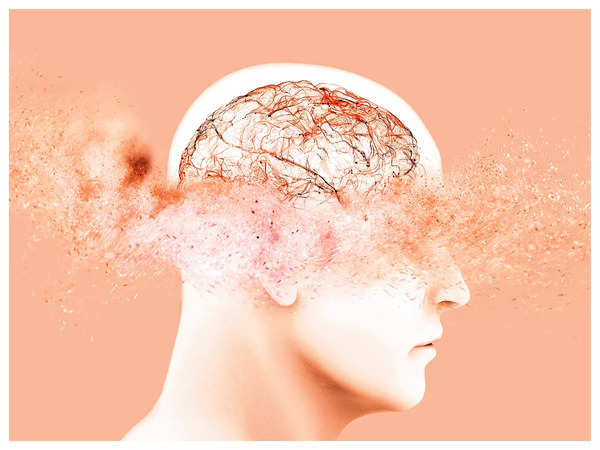Dr. Mohit Bhatt, Director, Neurosciences and Consultant Neurology and Director Medical Research, Kokilaben Dhirubhai Ambani Hospital Mumbai confirms, “Some degree of forgetfulness is indeed a normal part of aging. This might include occasionally forgetting names or appointments, but remembering them later.”
But many of us who have aging parents know the fear of dementia. The brain-damaging condition can be subtle at first before it steals the important memories and functionality of your loved one. An elderly parent who was once well versed in routes and directions suddenly begins to forget his way or tends to forget birthdays and anniversaries that he’d never forgotten in the past, start to stem fear in their children and partner. But when these signs begin to show, we compensate by saying, “It’s an age thing and it’s normal.” Moreover, several studies show that parents don’t want their children or their partner to find out these subtle changes, which makes the diagnosis even more difficult. Thus, it’s important for us to watch out for signs.

As per experts, when one’s forgetfulness begins to interfere with their daily life, it could indicate a problem. Dr. Vivek Kumar, Senior Director, Neurology, Max Super Speciality Hospital, Patparganj further adds, “Signs of forgetfulness that may be cause for concern include frequent memory lapses that interfere with daily life, such as forgetting important appointments or repeatedly asking the same questions. Other worrisome signs include difficulty learning new information, struggling to follow conversations or instructions, misplacing belongings in unusual locations, and experiencing confusion about time, places, or people. Additionally, significant changes in mood, personality, or judgment can also indicate potential cognitive decline.”
Dr Gaurish Kenkre, General Manager and Center Head, Atharv Ability explains, “With life expectancy increasing, more people will face actual degeneration of the brain, which is a cause of dementia. Forgetting things is a regular process of aging. And this is something that we need to address.”
There is no way to reverse brain degeneration but it can definitely be slowed down. “Our parents used to remember all phone numbers but extensive use of machines and technology is making us rely less on our memory and more on gadgets. The degeneration might just come in faster in the younger generation due to their increased dependency on technology. We have to rely more on physical activity, mental activity, even calculations that should happen in our own minds. That’s the only way to slow down degeneration.”
“IT’S NOT JUST MENTAL BUT ALSO PHYSICAL”
Dr Girish stressed on the importance of the elderly being physically independent. “While it is a mental condition, keeping the elderly physical active would be the most ideal thing. Make sure they go for small walks, are independent with their personal work and even toilet activities. These are very important things to note. Make them walk on different surfaces and not just a warm surface. Change of surface also makes the mind active. So you have to make them walk in a different environment. All these things are important.”
FAMILY MEMBERS SHOULD BE CONCERNED IF THEY NOTICE THESE SIGNS
While everyone forgets things occasionally, the signs of forgetfulness that might indicate the early signs of a more serious issue like dementia include:
Difficulty remembering recent events or conversations
Getting lost in familiar places
Difficulty with complex tasks that were previously easy, such as managing finances or following a recipe
Struggling to find the right words in a conversation
Changes in mood or personality
Confusion about time or place
Difficulty completing familiar tasks at home, at work, or during leisure activities
Misplacing things and not being able to retrace steps to find them
Family members should be concerned if they notice these signs consistently over time, or if they seem to be getting worse, Dr Mohit warns.
WHAT SHOULD YOU DO TO SLOW DOWN BRAIN DEGENERATION?
Dr Vivek shares things one must do to keep their brain active. “There are several proven methods to help maintain cognitive health and keep the brain sharp.”
Regular physical exercise
Maintaining a balanced diet rich in fruits, vegetables, and omega-3 fatty acids
Getting sufficient sleep
Managing stress
Engaging in mentally stimulating activities, such as puzzles, reading, learning new skills, or socializing
Maintain an active and socially connected lifestyle (it is especially beneficial for better cognitive outcomes in the elderly)
Example of few memory games are:
Work on jumbled words (Eg LEDIH – DELHI)
Memory game (Give them any 4 numbers and ask them to recall it in reverse. Eg 7925 and patient will recall 5297)
Maze puzzles
Card games
DIAGNOSIS
Consultation with a neurologist: Start by scheduling an appointment with a neurosurgeon and discuss your symptoms and medical history
Cognitive and neuropsychological tests: These tests measure memory, problem-solving skills, attention, counting, and language abilities.
Medical history: This includes information about symptoms, family history of neurological disease, dietary habits, alcohol consumption, and other lifestyle factors.
Physical examination: This could involve checks for heart health, blood pressure, and other potential health issues that can affect memory and cognition.
Brain imaging: Techniques like MRI or CT scans can identify strokes, tumors, or other problems that can cause dementia.
Blood tests: These can help rule out other conditions that cause similar symptoms, like vitamin deficiencies or thyroid problems.
However, while these tests can help identify risk and diagnose dementia, they cannot definitively predict who will develop dementia in the future.

